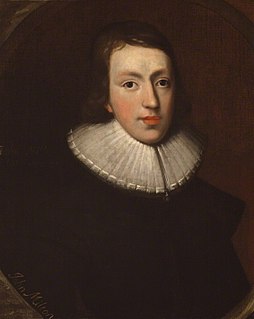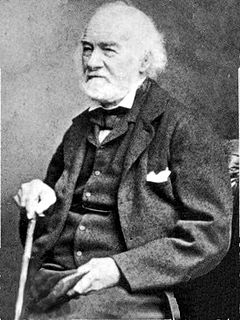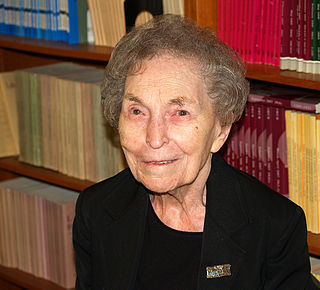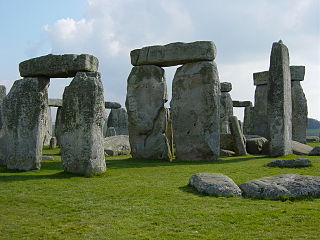
David Hume was a Scottish Enlightenment philosopher, historian, economist, and essayist, who is best known today for his highly influential system of philosophical empiricism, scepticism, and naturalism. Hume's empiricist approach to philosophy places him with John Locke, George Berkeley, Francis Bacon and Thomas Hobbes as a British Empiricist. Beginning with his A Treatise of Human Nature (1738), Hume strove to create a total naturalistic science of man that examined the psychological basis of human nature. Against philosophical rationalists, Hume held that passion rather than reason governs human behaviour. Hume argued against the existence of innate ideas, positing that all human knowledge is founded solely in experience.

John Milton was an English poet, polemicist, man of letters, and civil servant for the Commonwealth of England under its Council of State and later under Oliver Cromwell. He wrote at a time of religious flux and political upheaval, and is best known for his epic poem Paradise Lost (1667), written in blank verse.

Paradise Lost is an epic poem in blank verse by the 17th-century English poet John Milton (1608–1674). The first version, published in 1667, consisted of ten books with over ten thousand lines of verse. A second edition followed in 1674, arranged into twelve books with minor revisions throughout and a note on the versification. It is considered by critics to be Milton's major work, and it helped solidify his reputation as one of the greatest English poets of his time.

Sir Anthony Robinson, known professionally as Tony Robinson, is an English actor, comedian, author, presenter and political activist. He played Baldrick in the BBC television series Blackadder and has hosted several historical documentaries including the Channel 4 programmes Time Team and The Worst Jobs in History. Robinson was a member of the Labour Party and has served on its National Executive Committee. He has also written 16 children's books.

John Payne Collier, was an English Shakespearean critic and forger.

John Toland was an Irish rationalist philosopher and freethinker, and occasional satirist, who wrote numerous books and pamphlets on political philosophy and philosophy of religion, which are early expressions of the philosophy of the Age of Enlightenment. Born in Ireland, he was educated at the universities of Glasgow, Edinburgh, Leiden and Oxford and was influenced by the philosophy of John Locke.
Whig history is an approach to historiography that presents the past as an inevitable progression towards ever greater liberty and enlightenment, culminating in modern forms of liberal democracy and constitutional monarchy.

Allan Octavian Hume, CB ICS was a member of the Imperial Civil Service, a political reformer, ornithologist and botanist who worked in British India. He was one of the founders of the Indian National Congress. A notable ornithologist, Hume has been called "the Father of Indian Ornithology" and, by those who found him dogmatic, "the Pope of Indian ornithology".
Edward Phillips was an English author.

Lives of the Most Eminent English Poets (1779–81), alternatively known by the shorter title Lives of the Poets, is a work by Samuel Johnson comprising short biographies and critical appraisals of 52 poets, most of whom lived during the eighteenth century. These were arranged, approximately, by date of death.

Anna Jacobson Schwartz was an American economist who worked at the National Bureau of Economic Research in New York City and a writer for the New York Times. Paul Krugman once said that Schwartz is, "one of the world's greatest monetary scholars."[1] Schwartz is most notably recognized for her collaborative work with Milton Friedman on A Monetary History of the United States, 1867–1960, which was published in 1963.[2] This book placed the blame for the Great Depression at the door of the Federal Reserve System. She was also president of the Western Economic Association International in 1988.[3] Schwartz was inducted into the National Women's Hall of Fame in 2013.
Giles Milton is an internationally best-selling writer who specialises in narrative history. His books have been published in over twenty languages worldwide. He has written nine works of non-fiction, a thriller, two comic novels and three books for young children. He is best known for his 1999 best-selling title, Nathaniel's Nutmeg, a historical account of the violent struggle between the English and Dutch for control of the world supply of nutmeg in the early 17th century.
Tolkien's legendarium is the body of J. R. R. Tolkien's mythopoeic writing that forms the background to his The Lord of the Rings, a high-fantasy novel which is widely considered to be his magnum opus. Tolkien worked and re-worked the components of his legendarium throughout his adult life, a period of more than 50 years; the earliest drafts, published in The Book of Lost Tales (1983), date to 1916, with poems, paintings and nomenclature related to it going back to 1914.
The History of Britain, that Part especially now called England; from the first traditional Beginning, continued to the Norman Conquest. Collected out of the antientest and best Authours thereof, an unfinished prose work by the English poet John Milton, was published in 1670. Milton, who had supported the revolutionary cause during the English Civil War, mixed history based on a wide range of sources with comments on the restored monarchy of his time. He admitted the unreliability of many of his sources, but justified his use of popular fables "be it for nothing else but in favour of our English poets and rhetoricians, who by their art will know how to use them judiciously".

Peter Ackroyd, is an English biographer, novelist and critic with a particular interest in the history and culture of London. For his novels about English history and culture and his biographies of, among others, William Blake, Charles Dickens, T. S. Eliot, Charles Chaplin and Sir Thomas More, he won the Somerset Maugham Award and two Whitbread Awards. He is noted for the volume of work he has produced, the range of styles therein, his skill at assuming different voices, and the depth of his research.
The History of England (1754–61) is David Hume's great work on the history of England, which he wrote in instalments while he was librarian to the Faculty of Advocates in Edinburgh. It was published in six volumes in 1754, 1756, 1759, and 1761. The first publication of his History was greeted with outrage by all political factions, but it became a best-seller, finally giving him the financial independence he had long sought. Both the British Library and the Cambridge University Library, as well as Hume's own library, still list him as "David Hume, the historian." Hume's History spanned "from the invasion of Julius Caesar to the Revolution of 1688" and went through over 100 editions. Many considered it the standard history of England in its day.
Anna Hume was a Scottish translator, poet and writer.

The Mystery of a Hansom Cab is a mystery fiction novel by Australian writer Fergus Hume. The book was first published in Australia, in 1886. Set in Melbourne, the story focuses on the investigation of a homicide involving a body discovered in a hansom cab, as well as an exploration into the social class divide in the city. The book was successful in Australia, selling 100,000 copies in the first two print runs. It was then published in Britain and the United States, and went on to sell over 500,000 copies worldwide, outselling the first of Arthur Conan Doyle's Sherlock Holmes novels, A Study in Scarlet (1887).
A Light Woman is a 1928 British silent romance film directed by Adrian Brunel and starring Benita Hume, C.M. Hallard and Gerald Ames. It is also known by the alternative title Dolores. The screenplay concerns a flighty young woman who learns the error of her ways through a series of love affairs.













